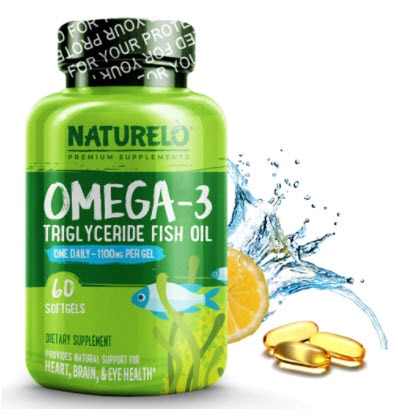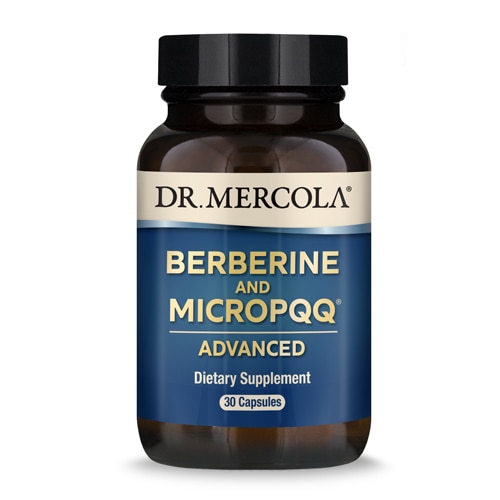We hear a lot about
cholesterol levels but not about another reading we need to keep tabs on for heart and brain health: triglycerides.
“Many fail to appreciate that triglycerides and cholesterol are very tightly tied to one another,” says
Root Cause Medical Clinic co-founder
Dr. Vikki Petersen, a chiropractor, certified clinical nutritionist and certified functional medicine practitioner. “A high triglyceride blood level, when paired with elevated bad cholesterol and low good cholesterol, is a strong risk factor of heart attack and stroke, making your triglyceride levels a very important marker to monitor.”

How do triglyceride and cholesterol readings work?
“Bad cholesterol” refers to low-density lipoproteins (LDL) and “good cholesterol” refers to high-density lipoproteins (HDL). Triglycerides are very-low-density lipoproteins (VLDL). All these get measured by volume in your blood. An easy way to remember whether you want high or low numbers for each one is to think “low” for low-density and “high” for high-density.
Your total cholesterol number is your HDL and LDL numbers, plus 20 percent of your triglycerides number. The whole shebang is called your lipid panel.
It's generally a good idea to fast for at least 10 hours before a lipid test. Triglyceride levels can surge as much as 30 percent after a meal. Alcohol also makes triglyceride levels rise, so don’t drink alcohol for 24 hours before a fasting cholesterol test,
Harvard Medical School advises.
Harvard, Cleveland Clinic and many other reputable sources recommend keeping triglyceride readings under 150. Too much LDL and VLDL means fats can start clogging up your arteries, leading to atherosclerosis, creating an increased risk of cardiovascular disease and stroke. Also, high triglyceride levels are associated with diabetes.
What are triglycerides?
Triglycerides are the most common type of fat in the body, Petersen notes. They aren't totally bad — they give you energy. But triglycerides also store excess energy (calories) from what you eat. They hang around in your fat cells until or unless you need them for extra energy.
Like cholesterol, triglycerides are fats that aren't soluble in your blood, so they flow through blood by binding to protein, called “lipoprotein.” As triglycerides are delivered to your cells, VLDLs transition to LDLs: their fat content goes down and their protein content goes up, increasing density (get it? from “very low density” to just “low density”).
HDLs meanwhile have much more protein than VLDLs or LDLs, hence higher density and are named as such. They are low in cholesterol and have no triglycerides. They actually help carry bad cholesterol away from your cells and blood vessels, allowing your body to eliminate it.
“There are other lipoproteins, but not typically measured in a blood panel,” Petersen says. “The one with the highest triglyceride and lowest protein level, making it the least dense, is called a ‘chylomicron.’ Chylomicrons transport lipids from your intestinal tract to your cells.”
Natural ways to lower triglycerides
Eat whole plant-based foods.
“Diet-wise, what is good for your overall cholesterol is generally good for maintaining healthy triglyceride levels,” Petersen says. “What has been proven is that a healthy plant-based, high-fiber diet — rich in fruit, vegetables, beans, legumes and moderate amounts of healthy oils, nuts and seeds — is beneficial for maintaining healthy cholesterol levels, healthy triglyceride levels and reversing heart disease, type 2 diabetes and obesity.”
Choose healthier fats.
Trade the saturated fat of meat and dairy products for the polyunsaturated and monounsaturated fats in nuts, seeds and olive oil. Stay away from trans-fats and hydrogenated oils or fats.
Avoid sugar and refined carbohydrates.
And completely eliminate any high-fructose corn syrup, Petersen advises.
Limit alcohol.
Alcohol has lots of calories and sugar. It also strongly affects triglycerides. If you have severe hypertriglyceridemia, avoid drinking any alcohol,
Mayo Clinic advises.
Exercise.
Shoot for at least 30 minutes of physical activity pretty much every day, according to Mayo Clinic. Regular exercise lowers triglycerides and boosts good cholesterol.
Remember: Unused calories convert to triglycerides. If you're overweight or obese, “losing just five to 10 percent of your body weight can have a significant impact on your triglyceride levels — up to a 20 percent drop,” Petersen says.
Journalist Mitra Malek regularly creates and edits content related to wellness.
Featured product:






